DevOps
Whether it’s application development or IT operations, we have got the solutions and support that will enable you to execute your projects and strategies. Our DevOps team has experience in software development, automation, and programmable infrastructure deployment and maintenance projects.
We turn ideas into live software, enabling startups to reap the benefits of collaborative DevOps approach while they focus on their core business.
- Bring down time to market
- Get resilient and secure software
- Avoid outages and downtimes
- Enable enhanced performance & scalability
- Get better ROI on your effort and spends
Our DevOps team is committed to quality of delivery and client satisfaction
Continuous Integration
Infrastructure Management
Configuration Management
ContinuousTesting
Continuous Monitoring
1. Continuous Integration/Continuous Delivery (CI/CD) Pipeline
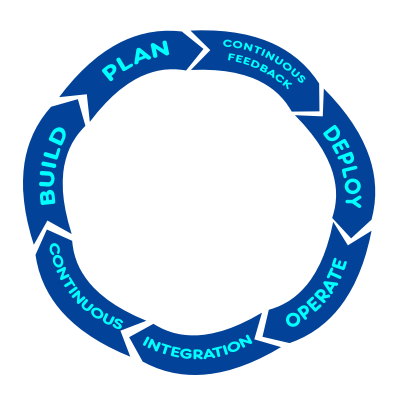
Say goodbye to last minute launch hiccups.
Continuous Integration (CI)
Continuous Integration (CI) ensures frequent merging of code written by developers. Thereafter, automated testing ensures validation of the new code with the existing setup; modifications in case of a conflict ensure an early bug fix.
Continuous Delivery (CD)
Continuous Delivery (CD) ensures the passage of code to the repository post completion of integration and automated testing of code. Thereby, building readiness for deployment.
Continuous Deployment
Continuous Deployment, an extension of Continuous Delivery (CD), forwards the successfully tested code from the repository to production environment.
Masscom’s experience in providing flawless CI/CD pipelines ensures a bug free code transfer resulting in a much shorter time to market, happier customers, and enhanced profitability.
2. Infrastructure Management
The modern practice of managing infrastructure for your DevOps binds your company’s hardware and software together. We have well-defined processes of setting up different components of infrastructure to enhance software release speed. We leverage cloud technology to provide Infrastructure as Code (IaC) and incorporate requisite infrastructure in the form of a Software i.e a ‘hardware virtualization’. IaC cuts down hardware management overheads and software release time. We eliminate the need to manage hardware, thus, boosting the performance, agility and reliability of DevOps. Other advantages include easier scalability and a more efficient change management process. Masscom has mastered the art of implementing IaC. With proficient planning and impeccable execution, we deliver desired results for our customers.
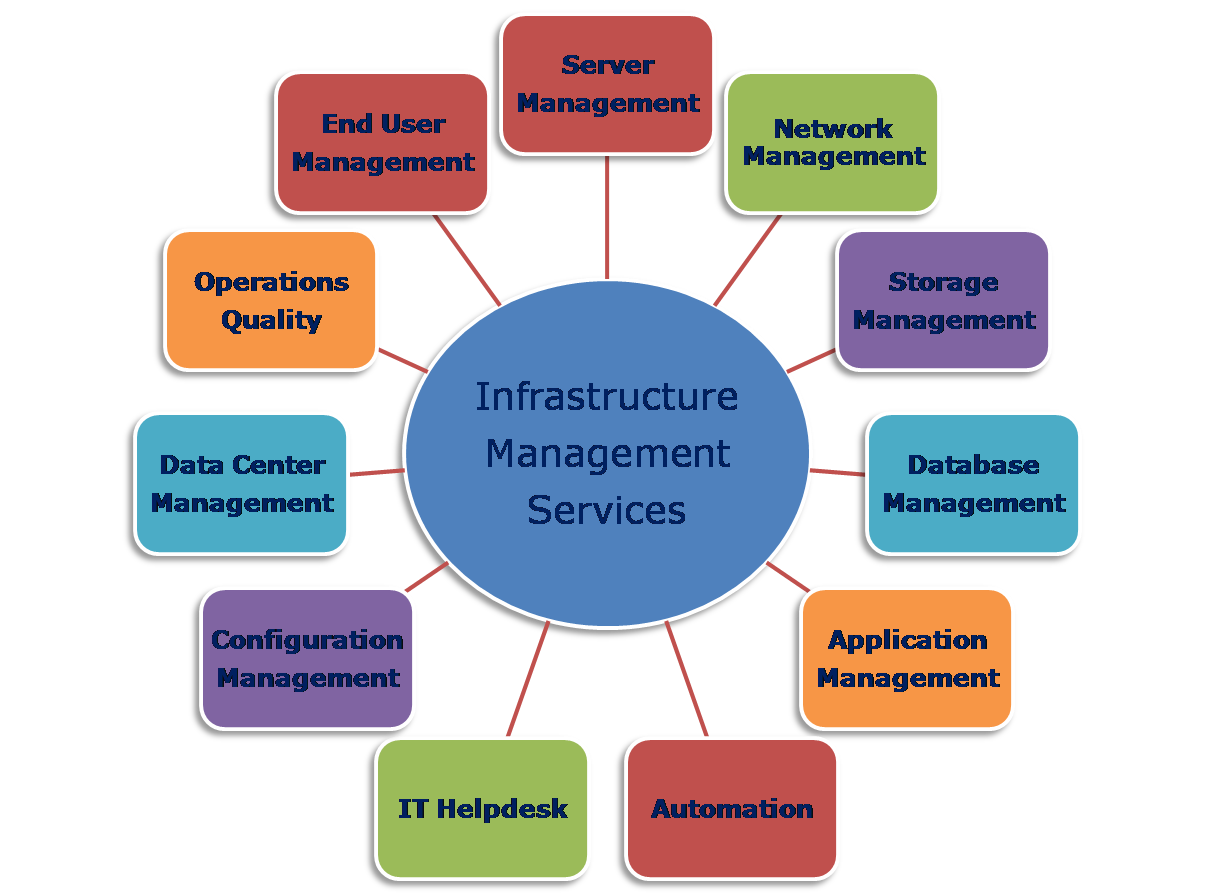
3. Configuration Management
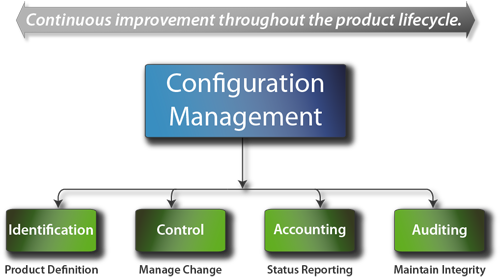
Consistent systems ensure error free configurations and smooth launch for DevOps success. Ensures that the configuration of all environments including testing and monitoring are optimal thereby avoiding any shocks pre and post production. Encompasses all resources ranging from servers, data centers, networks, operating systems, and IT assets to configuration files, ensuring reliability and ‘up-to-the mark’ functioning. Includes critical elements such as Configuration Identification, Configuration Control, and Configuration Audit. It spans the primary components:
- Artifact repository: Stores ‘binaries’ generated by Continuous Integration (CI) pipeline.
- Source Code repository: Stores all code – test, build & deployment scripts as well as configuration files.
4. Continuous Testing
Continuous Testing
Continuous testing ensures DevOps long term reliability & performance. Our team is equipped to undertake early & frequent testing throughout the DevOps pipeline to ensure there are no bugs. Through continuous testing, we obtain immediate feedback on the business risks associated with a software release candidate and thus ensure timely and successful project delivery.
Unit Testing
Ensures quick feedback on new code. Our experts use meticulous planning and execution of Unit testing methodology to ensure that the code is well-structured. This is helpful because even if some bugs are discovered later in the process, they are easier to debug and fix.
Integration Testing
Helps ensure the harmonious co-existence of different software components when put together in the shared pipeline. Every component performs its own function, as tested by Unit testing, also efficiently and effectively communicates with other components in the pipeline. Integration testing ensures that the build is stable and new code can be introduced in the pipeline.
Regression Testing
Automated End-to-End Regression Testing checks performance across different servers and the impact on other resources in an environment similar to production. The main goal of regression testing is to determine whether a change in a software component affects other components. The results of this test indicate the sturdiness and overall performance of the code.
Production Testing
Refers to the running of code in a live environment with real data and real users, but without showing the new behavior to the majority of users. This helps to pinpoint issues, if any, before causing any problem to a majority of the end customers. Prior to the release of any new feature, Production testing is an absolute must.
Live Testing
Helps to assess and address any final teething issues. At this stage, our experts try to check for extreme occurrences such as any application break while running at peak levels or if the code throws unexpected results during some of these scenarios. This is the final stage of testing and indicates the completion of testing phase.
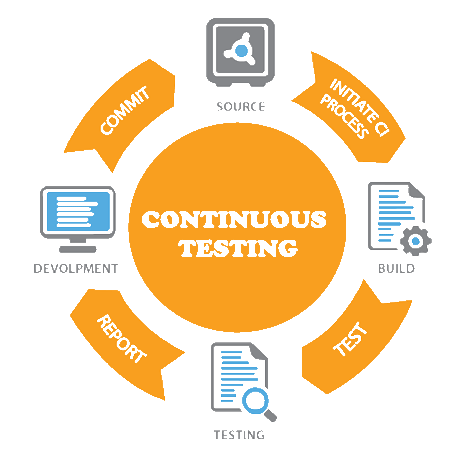
5. Continuous Monitoring
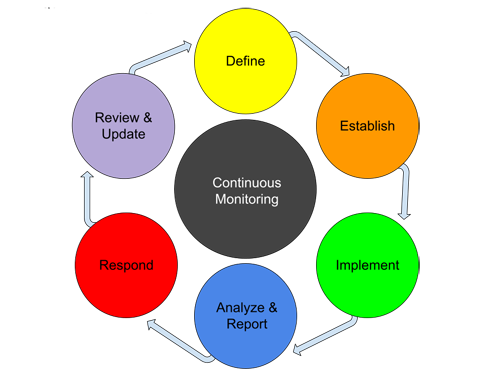
The most important parameter for DevOps success – optimum performance every day. We follow trusted mechanisms to detect any anomalies, compliance issues and/or security threats through Infrastructure Monitoring, Application Monitoring & Network Monitoring Timely detection ensures minimal downtime and provides the team adequate time to fix the issues.
